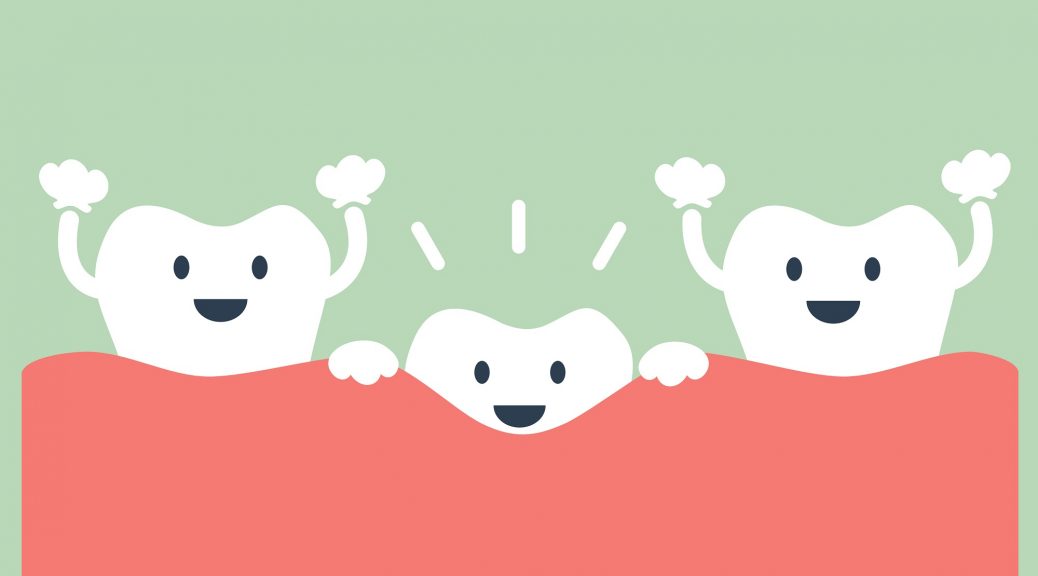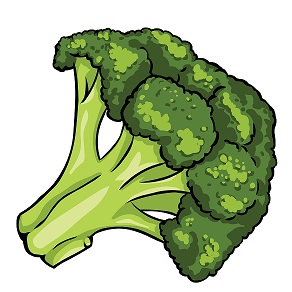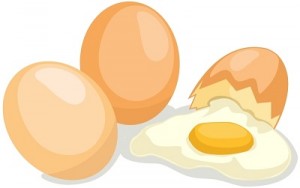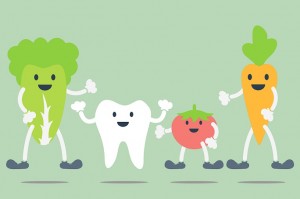
Feed your Teeth!
By nutritional therapist Katharine Tate, an expert in family health and nutrition
This month the British Dental Health Foundation launches its 40th birthday for National Smile Month (16th May – 16th June), therefore it’s a perfect time to focus on our children’s teeth and consider the impact of essential nutrients that can make a positive difference.
Latest statistics from the 2013 Children’s Dental Health Survey for England, Wales and Northern Ireland have found a reduction in the number of cavities in children’s teeth but almost half of 15 year olds had some decay. Though it is fantastic that a reduction has been reported, it is still a concern that large numbers of children and teens are affected by what is considered by Public Health England to be “serious” and “preventable”.
As optimal nutrition is the cornerstone of health for the complete body it’s impact on our dental health shouldn’t be ignored. Follow these nutritional top tips to focus on feeding your family for optimal dental health:
1. Calcium
Calcium phosphate is the major building block of our bones and teeth. Growing children, pregnant and breastfeeding mums require higher quantities.
Top Tip: Include foods high in calcium in your child’s diet such as cheese, Greek natural yoghurt (also low in sugar), sardines, green leafy vegetables, almonds, broccoli and seaweed. Be aware that water softeners remove calcium and foods high in phytates, such as spinach, rhubarb and cereals, can reduce absorption.
Try my guest fish balls recipe or easy cheesy flapjacks.
2. Vitamin D
Levels of vitamin D control calcium absorption and it’s balance with phosphorus, which impacts on our tooth development. Deficiency is associated with rickets and badly formed teeth. Testing vitamin D levels is fairly inexpensive and can be carried out at home following consultation with a nutritional therapist, which can be carried out at The Food Teacher Clinic.
Top Tip: Include foods that provide vitamin D such as grass-fed butter, eggs, cheese, mushrooms, Greek natural yoghurt and liver. Supplementation and ‘safe’ sun exposure are key to increasing vitamin D levels.
Try my chive scrambled egg or rainbow egg-fried rice recipe.
 3. Vitamin K
3. Vitamin K
Vitamin K is essential for calcium metabolism and to also support blood sugar balance. Optimal digestive health is a key factor in maintaining high vitamin K levels.
Top Tip: Include vitamin K rich foods in your child’s diet such as broccoli, liver, spinach, grass-fed butter, seaweed
and eggs.
4. Vitamin A
Vitamin A is utilised by the body for the formation of tooth enamel and also for collagen. Potential deficiencies can affect the cells that deposit and make bone.
Top Tip: Include foods rich in Vitamin A such as grass-fed butter, liver and dairy foods, which have the highest absorption rates. It is also found in beta-carotene in green, yellow and orange vegetables and fruits such as carrots, spinach and apricots.
Try my child friendly liver pate recipe.
5. Vitamin C
Vitamin C is required for tooth formation and the development of tissue structures such as collagen. A deficiency in vitamin C can result in scurvy, which can present as bleeding gums and ulceration.
Top Tip: Be aware that heat destroys vitamin C levels in food, so focus on including raw fruit and vegetables such as sweet peppers, oranges, kale and mangoes.
6. Blood sugar balance
High levels of sugar and refined carbohydrates in the diet will affect calcium and phosphorus levels; increasing the chances of compromised tooth development and potential decay. Reduction of these foods can contribute to better blood sugar balance.
Top Tip: Choose natural sweeteners and eat in moderation. Avoid refined carbohydrates such as sweetened breakfast cereals, white bread, pasta, cakes and biscuits. Plan low-glycaemic meals including protein, which helps to slow the release of sugar.
Try my nutty ‘nana loaf recipe.
 The key message regarding dental health is to focus on a diet of whole foods just as nature intended without processing, additives, colours, preservatives or added salt and sugar. This will help to provide the body with the necessary building blocks for optimal dental health.
The key message regarding dental health is to focus on a diet of whole foods just as nature intended without processing, additives, colours, preservatives or added salt and sugar. This will help to provide the body with the necessary building blocks for optimal dental health.
For more specific concerns consider a telephone, Skype or face-to-face appointment at The Food Teacher Clinic where a registered nutritional therapist can talk about your individual needs and support you with the development of a bespoke programme.
 About Katharine Tate
About Katharine Tate
The Food Teacher, Katharine Tate, has worked as a teacher and education consultant internationally in primary and secondary schools for over 20 years. Qualified as a registered nutritional therapist, Katharine, combines her unique education and nutrition expertise to offer schools, organisations and families advice, education programmes, practical workshops, and individual/family clinical consultations.
She has also published 2 books: ‘Heat-Free & Healthy’ and ‘No Kitchen Cookery for Primary Schools’ and look out for The Food Teacher as Food Festivals and events throughout the country during 2016.
For more information, visit her Facebook page, follow her on Twitter or email her at info@thefoodteacher.co.uk. You can also visit her website to find out more and subscribe to her newsletter.